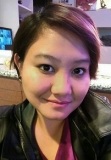
Someone once told me, “You can empower and educate yourself to the fullest extent, but your community will remain the same.” As an organizer, this quote stuck to me. I have always wanted to build a space for Hmong Lesbian, Gay, Bisexual, Transgender, Queer, Intersex, and Asexual (LGBTQIA) people to create awareness, education, and take action for a healthier community. I have only lived in Sacramento for 3 years, so I was unsure where to start because California is a huge state and the small amount of Hmong LGBTQIA I knew were living in LA. My other goal is to secure dialogue to keep Asian Pacific Islander (API) and Hmong organizations accountable for LGBTQIA persons and to keep LGBTQIA organization accountable for API and Hmong individuals. My amazing friend Mai Yaj Vaj contacted me about her aunt who share a similar vision and that’s when I met Julia Ann. Julia Ann Yang and I did a call out via social media site such as Facebook, MidWest Solidarity Movement, and Tumblr for any interest. We estimated 5-10 participants then decided to launch a video. Within days, we had more than 30 RSVP participants interested in the meet-up.
Why specifically Hmong LGBTQIA? They encounter intersectionality which is the concept of oppression and discrimination of overlapping social identities. This means, they are the minorities of White people and also of the Hmong community. They face racism from the mainstream and homophobic prejudice from their own community. Also, if they identify as a woman, they experience sexism. To truly understand themselves and the Hmong community, they need their own space to learn, grow, and reflect their own identities. In fact, I remember in high school and college, I joined the group People Respecting Individual Diversity and Equality (PRIDE) to meet people like myself who wanted to learn and understand sexuality and gender. To me, I always felt like PRIDE was a hidden acronym because college administrator were not going to approve LGBTQIA or Queer student org. Oddly, despite the name and being one of a couple people of color within the group, I struggled with the idea of what it means to be queer in my own minority community especially one that holds true to traditions. Mainstream LGBTQIA organizations and clubs fought so long for Marriage Equality which is beneficial, but often forgets the LGBTQIA family and relationships of minorities–which include people of color, disabled, women, and many more.

I believe Hmong LGBTQIA escape from the Hmong community because of deep rooted gossip, reputation, and inadequate support. How do we, as a community, change that? How can we help Hmong LGBTQIA feel safe in their community? As an organizer, I believe in building conversations and connections when speaking about the issue. Let’s not speak about it behind closed doors, but to truly understand how to build healthy Hmong families. As Hmong LGBTQIA, let’s not judge the whole community due to the lack of education and support. We are the people who need to support one another and our community. We should bridge and build a space for concerned parents and closeted Hmong LGBTQIA. Unfortunately, the Hmong community has obstacles; it is common for Hmong elders who are often set in stone in their ways it become a challenge to open their hearts and minds about Hmong LGBTQIA. On the other hand, many Hmong people I know say we should wait till the generation dies off. Furthermore, another obstacle I believe is people in general are reactionary so they do not want to learn or understand the issues of intersectionality until they are faced with it. For example, many innocent Black children died because they are being racial profiled by the police officer when the mainstream society strives on White privilege and racial stereotypes and thus created Black Lives Matter. In short, equality does not happen overnight, but we can work on ways to understand one another in better ways.
At the Hmong LGBTQIA Meet-Up, we began with introductions, ground rules, facilitated an education portion about how there is no word for Gay in the Hmong Language. Next we moved on to our discussion portion, where we asked four questions. First question was have they felt out of place in other LGBTQ spaces. They expressed how they felt sexualized, objectified, and sometimes the space was unhealthy filled with drugs and alcohol. Also, the space was no safe and it catered to white privilege. Second question, if they were to come out today, would parents will accept if they came out. Most of the folks who were already out to their parents are in denial and it will pass because it’s just a phase. In addition, one participant expressed in order to save face they will not tell their parents about their sexuality. Third question was how the Hmong culture is a barrier for Hmong LGBTQIA. For example, I expressed that as a daughter I cannot practice anything in the Hmong culture because my father won’t teach me because I’m a woman. They expressed that the Hmong culture is rooted in patriarchy and why can’t women xwm kab, we have male and female shamans. The last question was how to be break down these barriers and make the Hmong culture benefit us. They talked about education especially for our parents, that being LGBTQIA is not a phase, creating a safe support to tackle issues like suicide and death. We need more culturally competent resources and services to serve Hmong LGBTQIA youth and families and for allies to step up and educate other allies. Lastly, their sexuality is not who you are but part of you.
Julia and I will continue building dialogue and friendships with Sacramento Hmong LGBTQIA and parents so assist those who are in need of support then hopefully expand from just Sacramento. We also have amazing allies like Mai Yaj and Laura Vu organizers from Hmong Innovating Politics who are willing to help. We hope to create change by educating and empowering within the community. Hate and prejudice should not be what the Hmong community represents. Change is needed especially when the lives of Hmong LGBTQIA youth are on the line. To be Hmong, means to be free, but are we free in our own families to express our own sexuality and gender?
 Dee is a 26 year old workaholic living in NoCal. An organizer for many causes such as MidWest Solidarity Movement (MWSM), Building Our Future (BOF), Asian Pacific Islander Queer Sacramento (APIQSC), and Sacramento Hmong LGBTQ.
Dee is a 26 year old workaholic living in NoCal. An organizer for many causes such as MidWest Solidarity Movement (MWSM), Building Our Future (BOF), Asian Pacific Islander Queer Sacramento (APIQSC), and Sacramento Hmong LGBTQ.
Please feel free to contact Dee at dee@mwsmovement.com



 James Her is from Sacramento, California. He is the first in his family to obtain a professional degree. He received his undergraduate degree in 2014 from Humboldt State University in Sociology, and Criminology and Justice Studies. Currently he is a Master of Social Work (MSW) candidate at the University of Washington. He is in the process of completing his master’s thesis on Mental Health Within the Hmong American LGBTQ Community. He is currently interning at Asian Referral Counseling Services (ACRS) as a behavioral health therapist. He is also a research assistant for the Indigenous Wellness Research Institute (IWRI) and an active member of South East Asian Education Coalition (SEAeD). Upon completing his MSW he would like to go into direct practice and hope to pursue his PhD in the near future.
James Her is from Sacramento, California. He is the first in his family to obtain a professional degree. He received his undergraduate degree in 2014 from Humboldt State University in Sociology, and Criminology and Justice Studies. Currently he is a Master of Social Work (MSW) candidate at the University of Washington. He is in the process of completing his master’s thesis on Mental Health Within the Hmong American LGBTQ Community. He is currently interning at Asian Referral Counseling Services (ACRS) as a behavioral health therapist. He is also a research assistant for the Indigenous Wellness Research Institute (IWRI) and an active member of South East Asian Education Coalition (SEAeD). Upon completing his MSW he would like to go into direct practice and hope to pursue his PhD in the near future.

 Dee is a 26 year old workaholic living in NoCal. An organizer for many causes such as MidWest Solidarity Movement (MWSM), Building Our Future (BOF), Asian Pacific Islander Queer Sacramento (APIQSC), and Sacramento Hmong LGBTQ.
Dee is a 26 year old workaholic living in NoCal. An organizer for many causes such as MidWest Solidarity Movement (MWSM), Building Our Future (BOF), Asian Pacific Islander Queer Sacramento (APIQSC), and Sacramento Hmong LGBTQ.

 Kimora Cha is 26 years old and identify as a Hmong transgender woman from Sacramento, California.
Kimora Cha is 26 years old and identify as a Hmong transgender woman from Sacramento, California.






